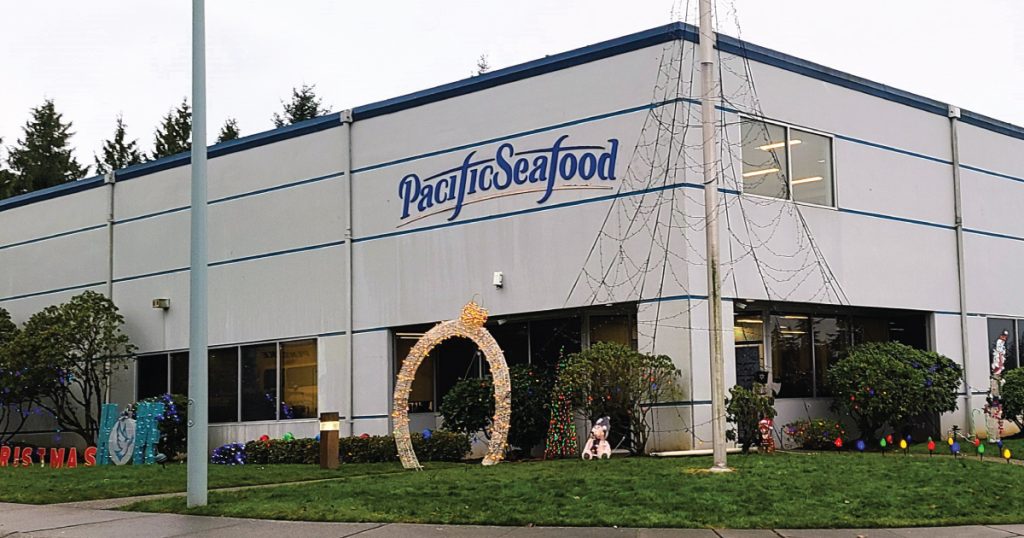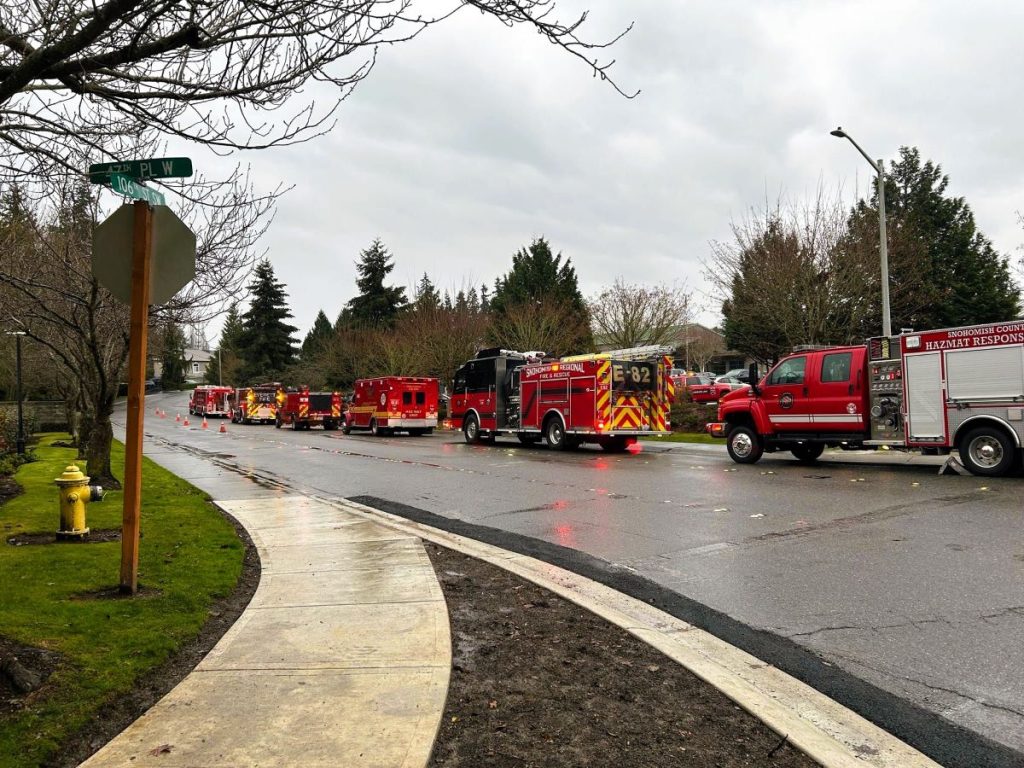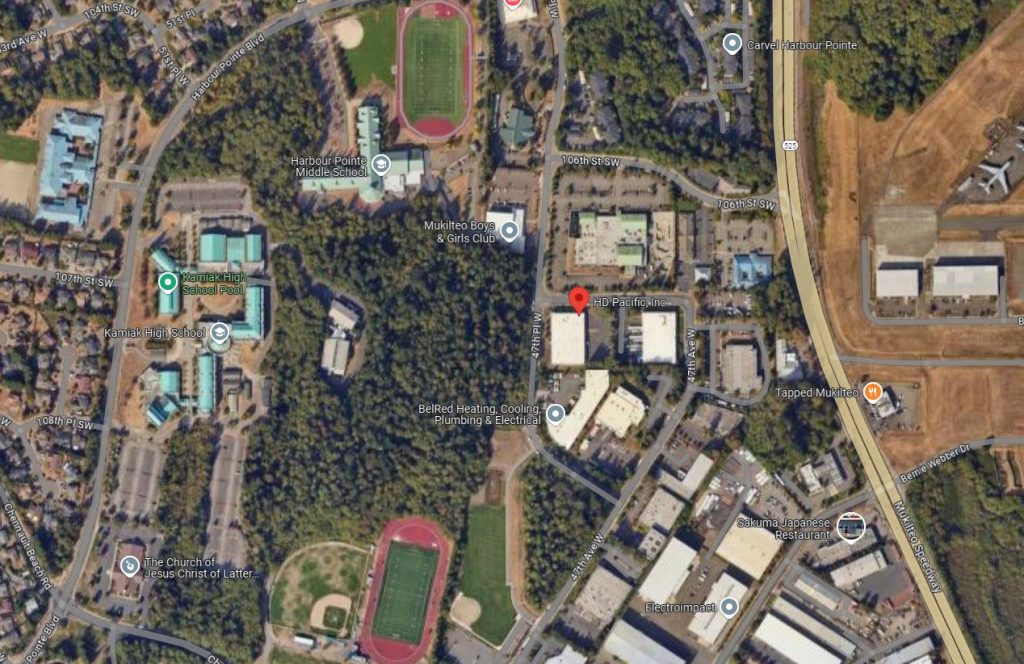MUKILTEO—One fire fighter suffered mild injuries after being exposed to ammonia when responding to a 3-alarm hazardous materials incident at the Pacific Seafood processing plant in Mukilteo on Friday morning.

Mukilteo Fire Department along with the Mukilteo Police Department, South County Regional Fire Authority, Paine Field Fire, Everett Fire Department, Marysville Regional Fire Authority, Snohomish Regional Fire Rescue, and North County Regional Fire Authority responded to a reported ammonia leak at a Pacific Seafood processing plant located at 4520 107th St SW in Mukilteo at 8:52 am, Friday, December 13.
Upon arrival, firefighters were able to establish an active leak within the refrigeration system. Within a 600-foot perimeter of the incident, occupants of neighboring businesses were directed to either leave or shelter in place. Additionally, multiple streets in the area were shut down to local traffic.

Hazardous materials technicians successfully isolated the main leak. During the initial entry by hazardous materials technicians, one firefighter suffered exposure to the corrosive chemical compound that is commonly used as a refrigerant for its ability to absorb large amounts of heat during evaporation, leading to high cooling efficiency in refrigeration systems.
After being evaluated for ammonia exposure, the firefighter was cleared by paramedics on scene.
The shelter in place directive was cancelled at 11:41 a.m.; however, crews remained on the scene to monitor the immediate area of the ammonia leak until 3:19 p.m. on Friday.
“This incident was a great example of the professionalism that all fire departments within Snohomish County possess and the exemplary ability to come together and assist one another with highly trained personnel,” Mukilteo Fire Chief Glen Albright shared in a statement.
Ammonia is a colorless highly irritating gas with a sharp suffocating odor. It dissolves easily in water to form ammonium hydroxide solution which can cause irritation and burns. Ammonia is very corrosive and damages cells in the body on contact. It is used in agriculture as fertilizer, as a refrigerant gas, a water supply purifier, and in the manufacture of plastics, explosives, fabrics, pesticides, dyes and other chemicals.
Ammonia gas is lighter than air, so it does not settle in low-lying areas.
Exposure to high concentrations of ammonia in air causes immediate burning of the eyes, nose, throat and respiratory tract and can result in blindness, lung damage or death. Inhalation of lower concentrations can cause coughing, and nose and throat irritation.

Due to the Friday’s ammonia leak, both the Mukilteo YMCA and the Mukilteo Boys & Girls Club closed, and three schools—Harbour Pointe Middle School, Columbia Elementary, and Kamiak High School—impacting thousands of students, were placed in a “modified shelter in place.”
Pacific Seafood, started in 1941, is a family-owned and operated seafood company headquartered in Clackamas, Oregon, that currently employs 3,000 people across 40 facilities in three countries—the United States, Canada, and Chile. The company harvests, processes, and distributes seafood, beef, pork, and poultry throughout the world.
For 33 years, Pacific Seafood’s Mukilteo location has operated out of the 24,000-square-foot plant across the street from the Mukilteo YMCA. Seafood from the plant is distributed to local hotels, restaurants and grocery stores throughout the region.
Author: Mario Lotmore











One Response
Per NIOSH, Jan 1979, “Working Safely with Anhrydous Ammonia” states “Anhydrous ammonia gas is considerably lighter than air and will rise in ~ air. However, ammonia has a tremendous affinity for water. It reacts immediately with the humidity in the air and may remain close to the ground. For this reason, you must be careful to stay upwind of spills, pressure relief valves, and other equipment from which ammonia may be vented.”